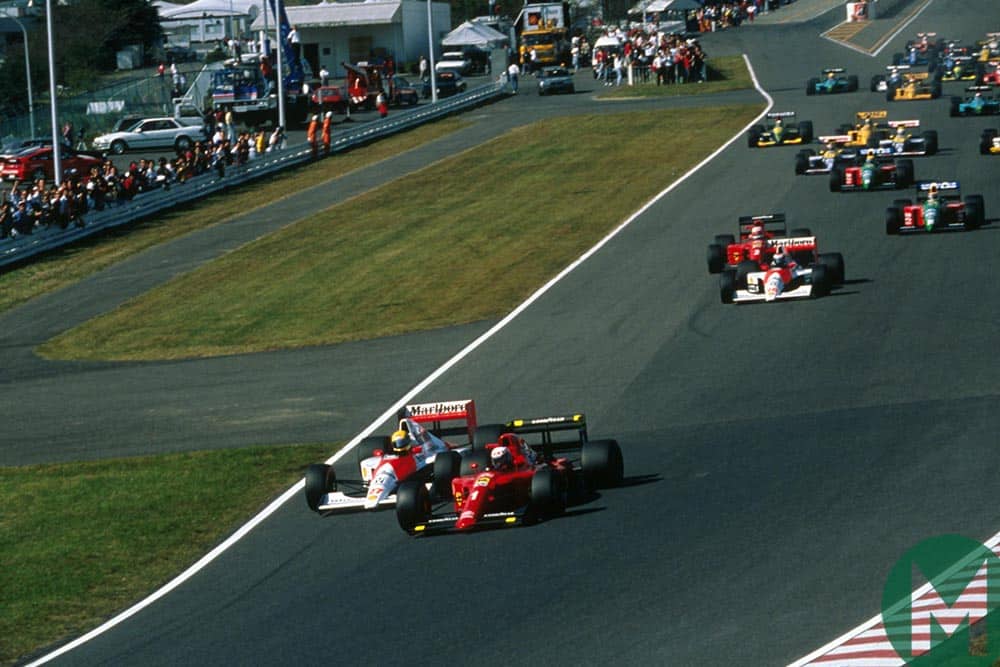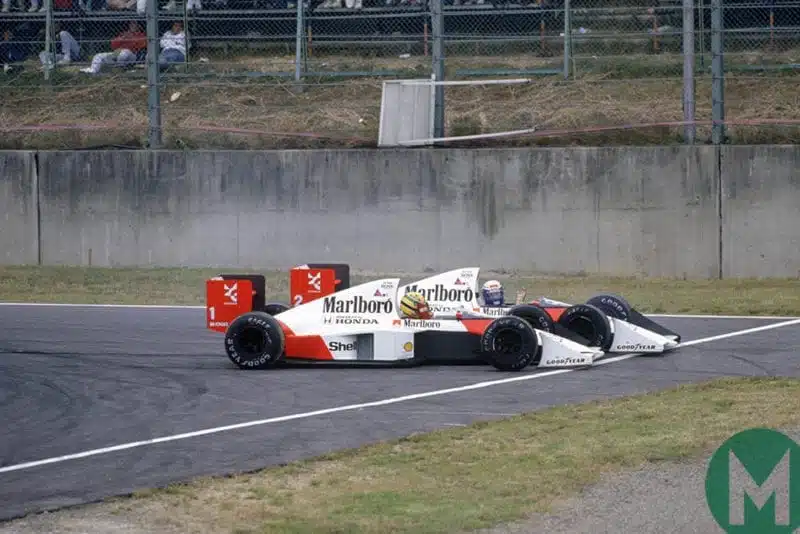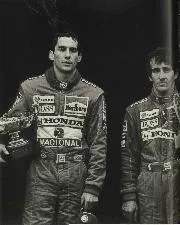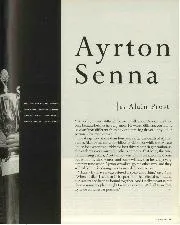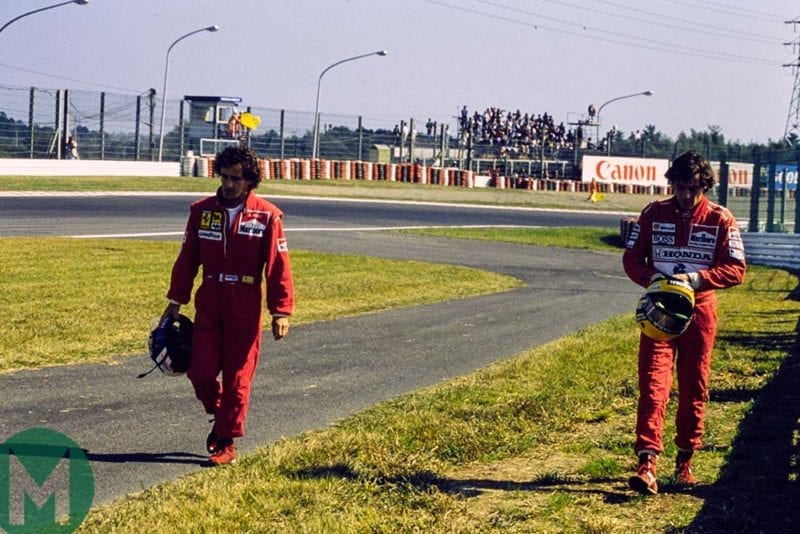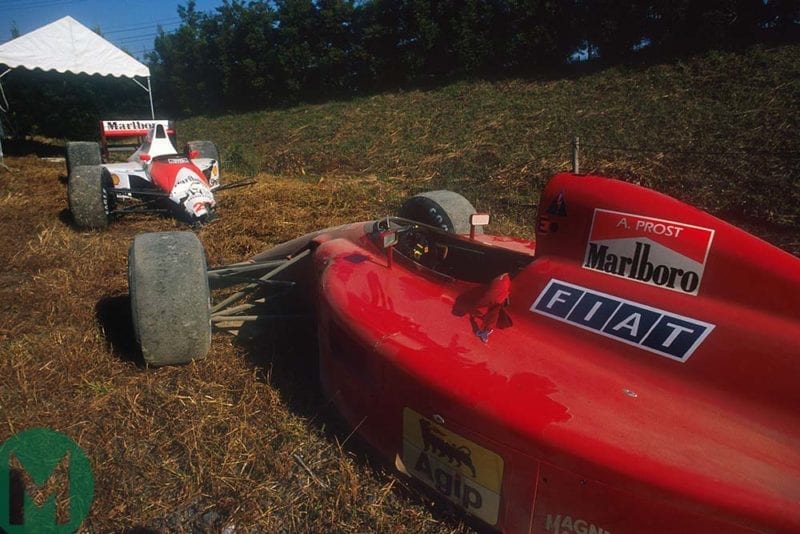It transpired in Suzuka this year that Senna never had the slightest intention of seeking a gap. What kind of man draws satisfaction from such behaviour? Certainly not the Clarks, Villeneuves or Ascaris of yesteryear, the true heroes of the game. Ayrton Senna revealed to us the dark side of his character when he exploded into a spiteful attack on Jean-Marie Balestre immediately after clinching his third World Championship. Prost had known the answer for the past year, but now the world would know too, and from Senna’s own lips. What follows may well offend those sensitive to references both fornicatory and fecal, but gives a graphic insight into his mental state in Japan.
The smart thing to have done would have been to accept the plaudits for a championship very well won, to bask in the image of the man who was so magnanimous in his day of great triumph that, like Nelson Piquet in South Africa in 1983, he was prepared to let his team-mate win. Instead the bitterness and hate that consume him, and will forever prevent him from being a man at peace, came spewing out of Senna. The tide of passion washed up all the anguish of Suzuka 1989 and 1990, and swept him away in wave after wave of self-justification. His ‘message’ was broadcast not just to a stunned media, but also to an equally open-mouthed spectator audience at the circuit.
“89 was an unforgivable situation,” said this man whose belief in God does not appear to embrace his teachings about humility and forgiveness. “I still struggle to cope with that. Balestre gave the order that we don’t change pole position from the right to the left. I did the right thing when we crashed at the first corner. Prost turned to cut me over, he pushed me out.”
This was dangerous stuff. Was he really saying that it was right to crash deliberately because he couldn’t have his own way and had lost the start in a race scheduled to last 53 laps? The hole he was so frantically digging himself got deeper. The following italics are mine.
“Balestre gave an order not to change. It was hard but I know the inside system. And this is really shit. I tell myself okay you try and work clean, then you get [expletive] by stupid people. So I said to myself, ‘Alright, tomorrow I’ll tell you the [expletive] truth, 100 per cent truth.’ If Sunday at the start, because I’m in the wrong position, Prost gets the jump and beats me off the line, at the first corner I’ll go for it. And he had better not turn in, because he’s not gonna make it. And it just happened, I guess. I just wish it didn’t happen. I really wished that I could have had the start, because then we could go and go. It’s unbelievable that it had to happen. He got the jump and he was turning in and I hit him. We were both off and it was a shit end of championship. It was not good for me and not good for Formula One. It was the result of the wrong decisions and partiality from the people inside that make the decisions. I won the championship, so what?”
